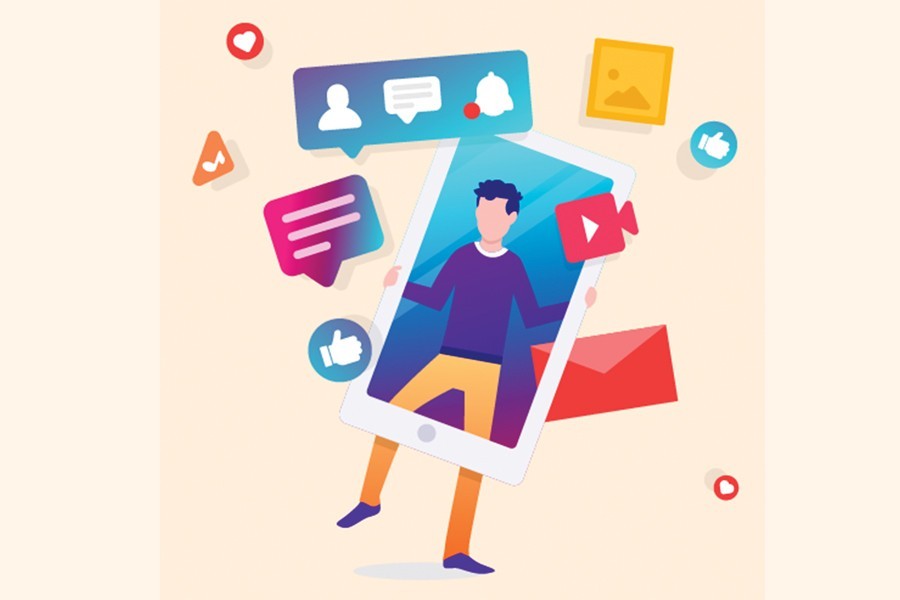Last March the terrorist attack in Christchurch showed the world something sinister - misuse of social networking. The horror was telecasted live via Facebook although taken down soon after. A few days ago, the Myanmar army chief Hlaing's Twitter handle was disabled. Facebook took similar action a couple of months back against him for reasons well-known to us. Such stories prove technology is as good as the individuals using it; not that we didn't know already. But social networking had no ill-intent at birth.
Communications carried out via email between individuals before, and after, the advent of social media was kept private. Moreover, the tool has all along been used by the literate. In contrast, social networking sites opened the floodgates to all and sundry. People signed up to a site or group of their liking and flooded them with profiles, pictures, videos and other information of a personal nature.
Personal space was conveniently forgotten. Portals like Facebook harvested handsome advertisement revenues with ads targeted by location and preference. Investors, executives and employees of such tech companies got rich. The bonanza seemed too good to be true.
The concept of friendship underwent a transformation as 'virtual' friends are invited to post likes (preferably) and dislikes. Braggarts showed off to an audience hungry for entertainment. Countless users let their guards down and became cosy with strangers, friends in name only. Youngsters mixed up the real world with its virtual avatar.
As technology is wont to progress the baby steps of social media gave birth to Classmates.com, reported to be its first incarnation. Later, Friendster, Myspace, and the revolutionary app Facebook appeared. Teenagers went crazy, with pre-teens in tow. Moms weren't far behind to show they were no less tech savvy leaving babies staring at pram handles instead of their handlers. Addiction with the internet generally and social media specifically, helped on by the ubiquitous smartphone, is concerning. Just look at distracted driving as proof.
Users search the use-friendly platforms for friends, followers, relatives, classmates, coworkers and old flames even. People the world over fell head over heels to connect with whom they have something in common however superficial or temporary it may be. Social media has proven to be a great avenue for retired people and stay-at-home women, among others, to pass the time. For small businesses Facebook has become a low-cost outlet. Artists and performers showcase their creativity; hobbyists exchange ideas.
In this heady new world privacy was cast aside, perhaps unwittingly, like styrofoam cups. The genie escaped the bottle as people took advantage of social media's huge presence to suit their world-views and propagate those stories and ideas. Bedroom experts mushroomed. Whether the views were narrow, parochial or hurtful mattered little.
The link between social and media became tenuous as propaganda flowed from the hands of adroit users. Many started believing whatever they were being fed. Biases, conscious or unconscious, were being fanned. Stories were concocted and the innocent victimised.
Unbeknownst to users Facebook sold personal information collected from millions of unwary users. This breach of trust is being viewed very seriously by authorities in advanced countries with the likes of Mark Zuckerberg called to account. The EU (European Union) has promulgated the General Data Protection Regulation (GDPR) as a warning to malicious hackers. However, in view of the ever-evolving technology and shrewdness of crooks it remains to be seen how effective it is.
Without delay, the Ministry of Information of GoB should take effective measures to warn and educate the public about data theft and work with stakeholders in this arena. Data is the building block of knowledge which, in the information age, is power. Our national interest dictates that we fortify our repositories of knowledge.
Raihan Amin is Consultant, Centre for Service Quality Enhancement


